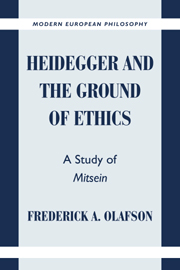2 - Truth, Responsibility, and Trust
Published online by Cambridge University Press: 05 June 2012
Summary
It would be an impoverished view of the relations in which human beings stand to one another that made these turn simply on a need for information in abstraction from any wider life context. That there is such a need and that it can be met only by a disclosure of the world that is both joint and co-operative was established in the preceding chapter. But by itself this kind of co-disclosure cannot generate an ethical relationship among human beings. For that, some conception of the interests and needs of these human beings is required and, with it, an understanding of how one human being can help or hurt another. In other words, instead of just talking about disclosure as such, it will be necessary to talk about action and its consequences and especially about the way the relation between human beings outlined in the preceding chapter informs the domain of human action. This chapter will deal with these matters as a way into the questions about how an ethical relationship comes into being between one human being and another. My strategy will be to try to determine whether there may not be a level of complementarity among human beings in the domain of choice and action that is modeled on but also goes beyond the complementarity of disclosure that was discussed in Chapter 1.
First, it will be helpful to clarify the way Heidegger understands the disclosive function of human being in its relation to action across the board.
- Type
- Chapter
- Information
- Heidegger and the Ground of EthicsA Study of Mitsein, pp. 40 - 68Publisher: Cambridge University PressPrint publication year: 1998



